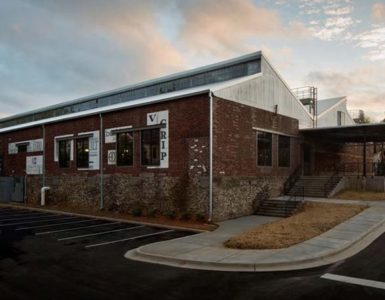I grew up in a home where talk of the Rapture was as commonplace and offhand as talk of the weather. One day — one day soon, we imagined — Jesus Christ would appear in the skies with legions of righteous angels. Graves would burst open. The unsaved would cower and plead, but their cries would fall on deaf ears. Time would be up; Judgment Day would be here.
We didn’t care much for the term “The Rapture.” The Bible doesn’t use the term, and the only people in our neighborhood who did use it were Baptists, and we knew all of them were going straight to hell. So we called The Rapture other things, including “The Great and Terrible Day of the Lord.”
As a four year-old, I somehow confused “the Day of the Lord” (a limited engagement, coming around just once) with “the Lord’s Day” (a weekly event). Every Sunday, then, I would lock myself in our tiny bathroom, close the lid on the commode, pull myself up to the window, and scan the skies. Would this Lord’s Day actually be the Great and Terrible one? Would today be The Day?
The bathroom vantage point, by the way, was a particularly good one. Our house on the hill overlooked a massive graveyard. If Jesus came back while I was perched atop the toilet, I would have an unforgettable view of all the grave-busting action. (I imagined other saints asking me, “Where were you when Jesus came back?” I would reply, very non-chalantly, “Watching a graveyard.” The other saints — most of whom would have been stuck in cars or asleep — would nod in approval and envy.)
As a child, I never imagined that the Day of the Lord would hold anything for me but success. As a young adult, however, the church worked overtime to undermine my sense of security.
Only the unblemished would be swept up to heaven. A single stain — a curse uttered and forgotten, a lustful glance at the way Kevin Richards filled out a tight t-shirt, a shadow of doubt about the perfect righteousness of the Church of Christ — might result in my being swept into Hell, instead.
A youth group leader put it this way: “You could live a perfect life, never sinning. Then, stepping out into traffic, you could see a bus headed right for you. In that moment of fear and weakness, you might be shocked into cursing. When the bus hits you, you will be stained by sin and in an unrepentant state. Where will you wake up? In a Devil’s Hell.”
Deep inside, we all knew we didn’t measure up, and this gave rise to a sort of desperate paranoia concerning sin. Church services began with a prayer — and duing it, Brother Mann would beg God to forgive us of our sins of omission and our sins of comission. Sunday School, started with a prayer (and requests for forgiveness) and ended with a prayer (and requests for forgiveness). Worship service began with a prayer (more requests for forgiveness), was punctuated with prayer (and requests for forgiveness), and ended with prayer (and more requests for forgiveness).
How much sin could you commit in the time it took you to wander from the auditorium (what we called the sanctuary) to the classrooms? A lot, apparenly: in one two-hour church service, it wasn’t unusual to hear people beg God to forgive their sins as many as a dozen times.
A related memory: Keith Prado, a recently baptized young man, took his place before the congregation to lead his first public prayer. Poor Keith went completely blank, and so was reduced to repeating again and again the only phrase that came to mind: “Lord, forgive us. Please forgive us. Lord, just forgive us. Forgive us.” (This went on for several minutes, until one of the older men in the congregation very loudly said, “Amen.”)
Keith prayed that way; the rest of us lived that way — convinced of our worthlessness, painfully aware that we would never measure up, and paranoid about the state of our souls. With time, my eager anticipation of the Great and Terrible Day evolved into terror.
I began to have nightmares that always ended with an ear-splitting trumpet, a blinding light, a thunderous voice, and the knowledge that Judgment Day had arrived … and I was bound for an eternal hell.
I had these dreams as often as twice a week, and I would wake up from them screaming and weeping. My brother had them, too — he would watch as other people rose up into the sky, and he would leap after them, only to fall to the ground.
We were The Saved. We had The Truth. I took great pride in thinking our church was the only one really going to heaven … but inwardly, I was convinced I would never make it there.
I was waiting for Jesus … to send me to Hell.


Add comment